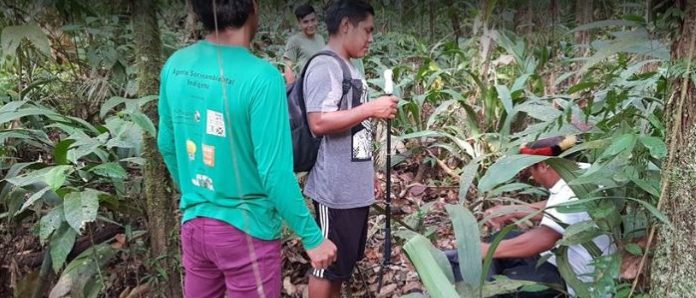The project was produced by young people from the Karapijuty village in Amapá
From the remote village of Karapijuty, in the interior of Amapá, the first documentary made with 360° technology in the state was produced at the end of 2019. “Dono que a gente não vê” (Moma’e jãrã kõ jikuaê’ã kõ), produced and conceived by Kauri, Motam and Kuripiri Wajãpi, talks about the creators of the forests, fish, birds, and skies. The intention was to show the world the knowledge of the Wajãpi people about genesis.
“For the Wajãpi, there are several different owners, but we don’t see them. Even so, we have to respect and take care of them. That way, they will take care of us too, and they will not harm us,” explains Kauri. “If we don’t take care of them, they can cut down all the forests, pollute the rivers, get angry and increase health problems for people,” he adds.
The recommendation for young people to participate in the Recode project in partnership with Facebook came from the director of the Aramirã Indigenous Education School, Evilázio Ribas. The project teaches virtual reality for social impact. After learning how to handle the camera, understanding technology and the editing process, there were seven days of filming in the village. For Kauri, the process was the beginning of something bigger. The young man says he wants to continue producing and already has several ideas.
“The next documentary I want to film the elders and shamans, how they see the world, how they communicate with the owners of each forest, tree, river, animals… and then translate it into several languages so that more and more people can understand our people,” concludes Kauri.
In April 2020, the short film was chosen to be part of the new list of 360° videos from Digital Promise in partnership with the UN, the My World 360°. The initiative brings together videos produced by young students from Brazil, Argentina, Panama, Mexico, the United States, South Korea, and India.
Check out the 360° documentary here.
[:]